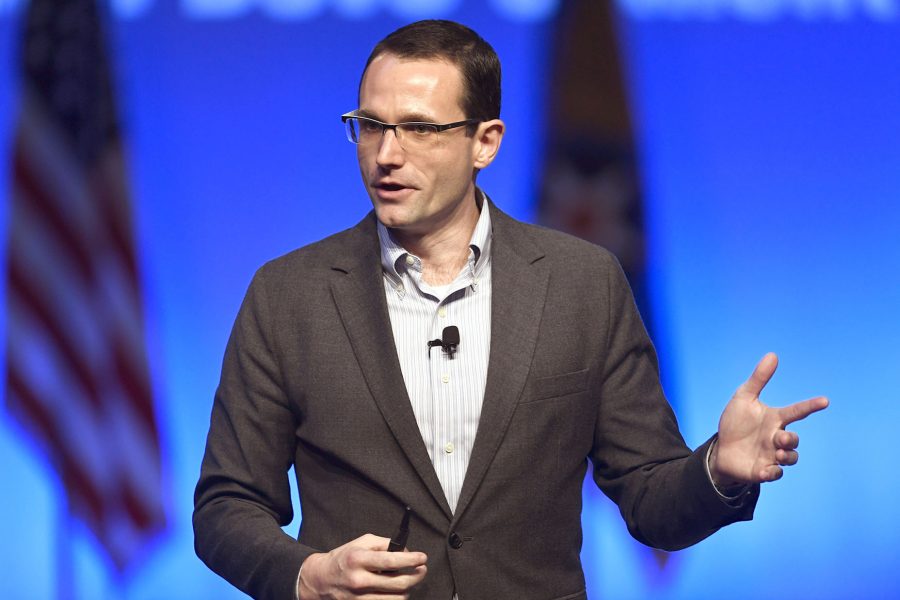As the Air Force and the rest of the Department of Defense look to modernize and compete in a rapidly changing world, they need to attract top talent in a new array of fields, from programmers to data scientists to quantum researchers.
In order to actually make that work, DOD and Congress need to rethink what goes into governmental service, and that includes the notorious “revolving door,” the Air Force’s former acquisition boss said Oct. 7.
Government watchdogs and lawmakers have long decried the practice of top officials leaving the Pentagon only to land jobs at leading defense contractors. Easing the differences between civil service and commercial work is necessary in certain areas, argued Will Roper, the Air Force’s former assistant secretary for acquisition, technology, and logistics, during Politico’s virtual Defense Forum.
“For the system to be in equilibrium, the ‘revolving door’ pejorative needs to become superlative. The type of talent that we need in fields like AI or quantum sensing, it’s so valuable commercially, we can’t delude ourselves to think we’re going to compete with the opportunities in private markets,” Roper said.
Indeed, the divide between commercial cyber and technology companies and the military is so severe, Roper said, that the two are “annexed.” His solution is to lower the barriers to entry—and exit—into the Pentagon workforce.
“If there were opportunities to come into the government for limited tours of duty, where [innovators] could solve significant challenges and then easily go back to the private sector where their skills are refreshed, I think we would see a completely different dynamic within the government,” said Roper, now the CEO of drone logistics company Volansi.
While the military cannot hope to offer the same pay and benefits as a private company, “innovators and entrepreneurs gravitate to problems,” Roper added, and government should work to make itself an attractive, flexible place where those people can go to wrestle with those problems.
Roper isn’t the only one pushing for changes in how civil and military service are understood. Chief of Space Operations Gen. John W. “Jay” Raymond and other leaders within the U.S. Space Force have touted the benefits of a new approach that will allow part-time service among individuals who are already working in the space industry.
The importance of flexibility in the workforce to leverage talent isn’t just a theoretical benefit, added Mark Sirangelo, a member of the Defense Innovation Board and a former executive vice president with Sierra Nevada Corp. Speaking alongside Roper at the virtual forum, Sirangelo pointed to how China handles its workforce.
“If we don’t look at how … we bring the best of the best to the upcoming issues and potential fight that we might have, we’re going to have a challenge here,” Sirangelo said. “And I think one of the things that at least I’ve seen that China has been doing is, they have significant human capital—that’s not news to anyone—but I think the other piece of that, though, is career tracking that capital, so that the experience and longevity and understanding gets to be maintained.”
Between the Defense Department and private industry, Sirangelo said, the U.S. has to develop its own human capital plan to leverage its strengths.
That plan will feed into a larger strategic approach in competing with China—and just like it should emphasize flexibility and collaboration between industry and government, the broader strategy can’t be too rigid, Roper said.
“If we have the fastest and most agile system in the world, then we can deal with the most uncertainty, and that will have a deterrent factor for the U.S.,” Roper said. “And we don’t have that today. So we’re on the losing side of the strategy, and we must get to the winning side. The answer is not going to be airplanes, ships, [or] ground vehicles. The answer is going to be the fastest and most agile system, to build whatever. The future is too uncertain to say, ‘We know how to beat China in 2030, 2035.’ … If you don’t know what the future is, be agile.”
